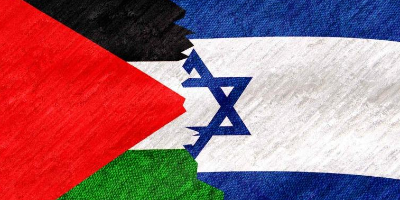Arab-Israeli War (may 15, 1948 – mar 10, 1949)
Description:
As soon as the British had left Palestine, Israel was invaded by Transjordan, Lebanon, Iraq, Egypt and Syria, who joined the Palestinians against the Israelis. The civil war had become international.At the beginning, the Israelis struggled due to lack of weapons, but they used the two UN truces to regroup and by the end of the war, they had gained land (the war is remembered as the 'War of Independence/Year of Liberation' by Israelis):
- Gaza and the West Bank had shrunk
- West Jerusalem was now Israeli (and Jerusalem was declared as Israel's capital to discourage the Arabs)
- There was a clear route to Jerusalem
The Palestinians were devastated (they called it Al-Naqba - the Catastrophe) because:
- Jordan now occupied the West Bank and East Jerusalem
- Egypt now occupied the Gaza Strip
- 750,000 Palestinians (those who weren't still in Israel) were now refugees*
- those who had been forced out believed they had a 'right of return' but Israel denied this
- only Jordan allowed Palestinians citizenship so they could work and travel (other countries argued that this would undermine the 'right to return')
The war ended with a truce signed by all the countries involved, apart from Iraq. However, this was not a peace treaty, and therefore meant that peace was less likely in the future.
*100,000 Palestinians started new lives in the Middle East and in the USA. Many others settled in huge refugee camps on the borders of neighbouring countries. These camps had water shortages and poor sanitation. The overcrowding caused the collapse of the local economy in Gaza.
Added to timeline:
Date:
may 15, 1948
mar 10, 1949
~ 9 months
